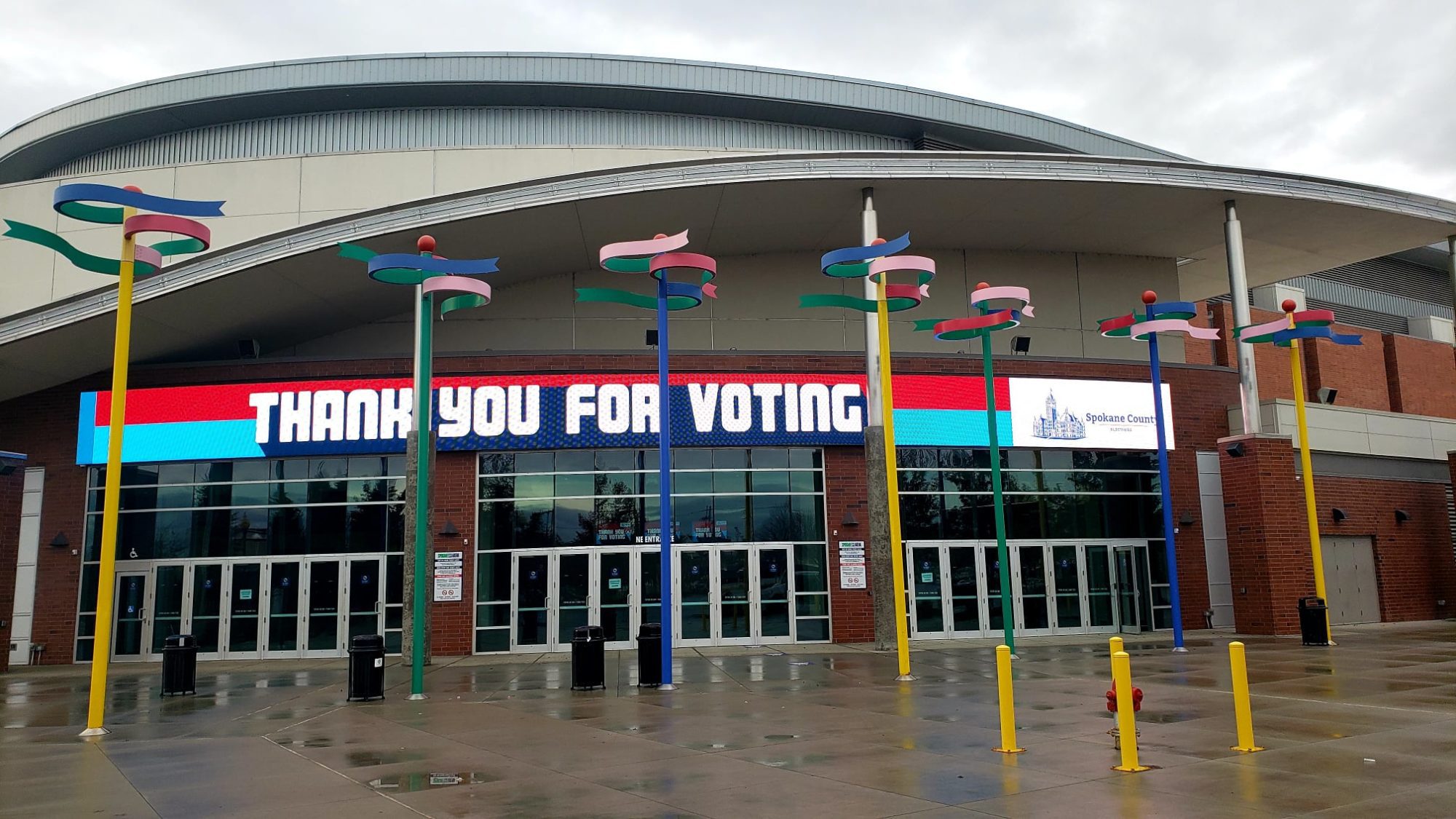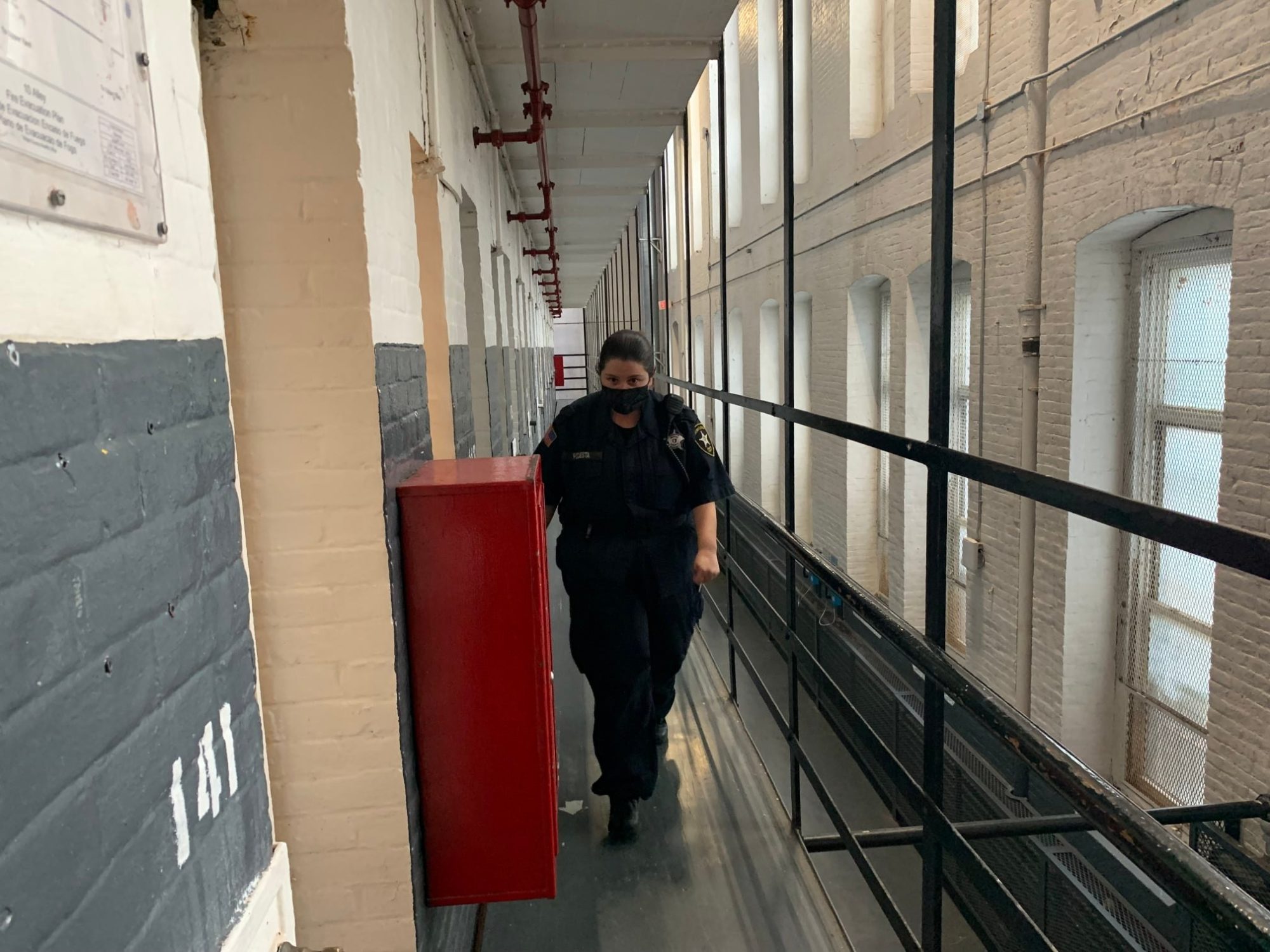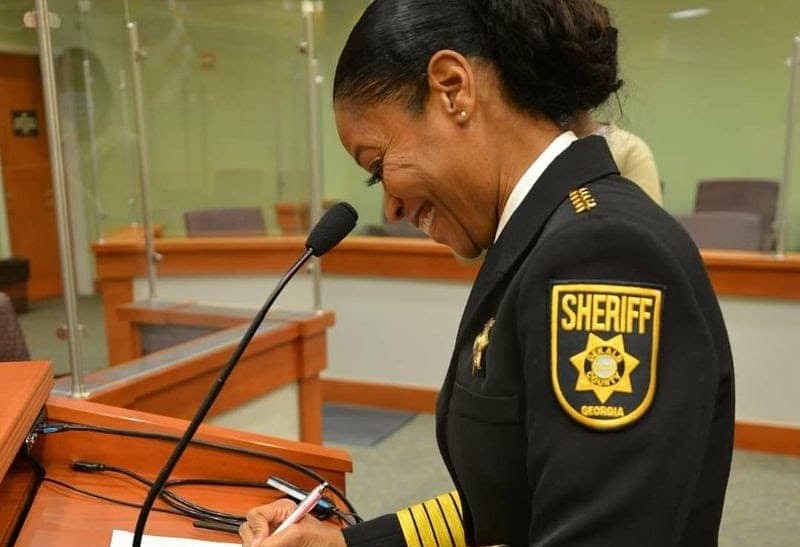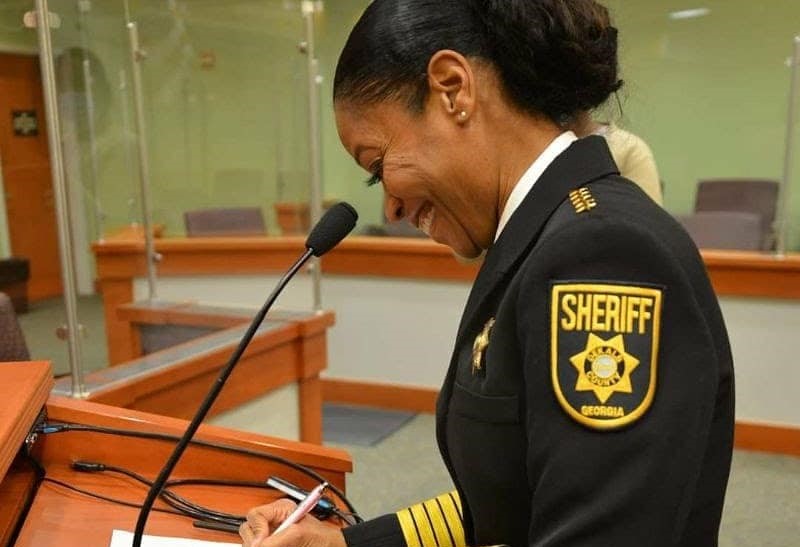Dallas County Jail Adds Election Day Polling Place After Pressure from Activists
Nearly all county jails make incarcerated people rely on absentee ballots to vote. Voting rights organizers say that misses eligible voters, and have started pushing to set up polling places behind bars.
Jessica Pishko | July 26, 2023
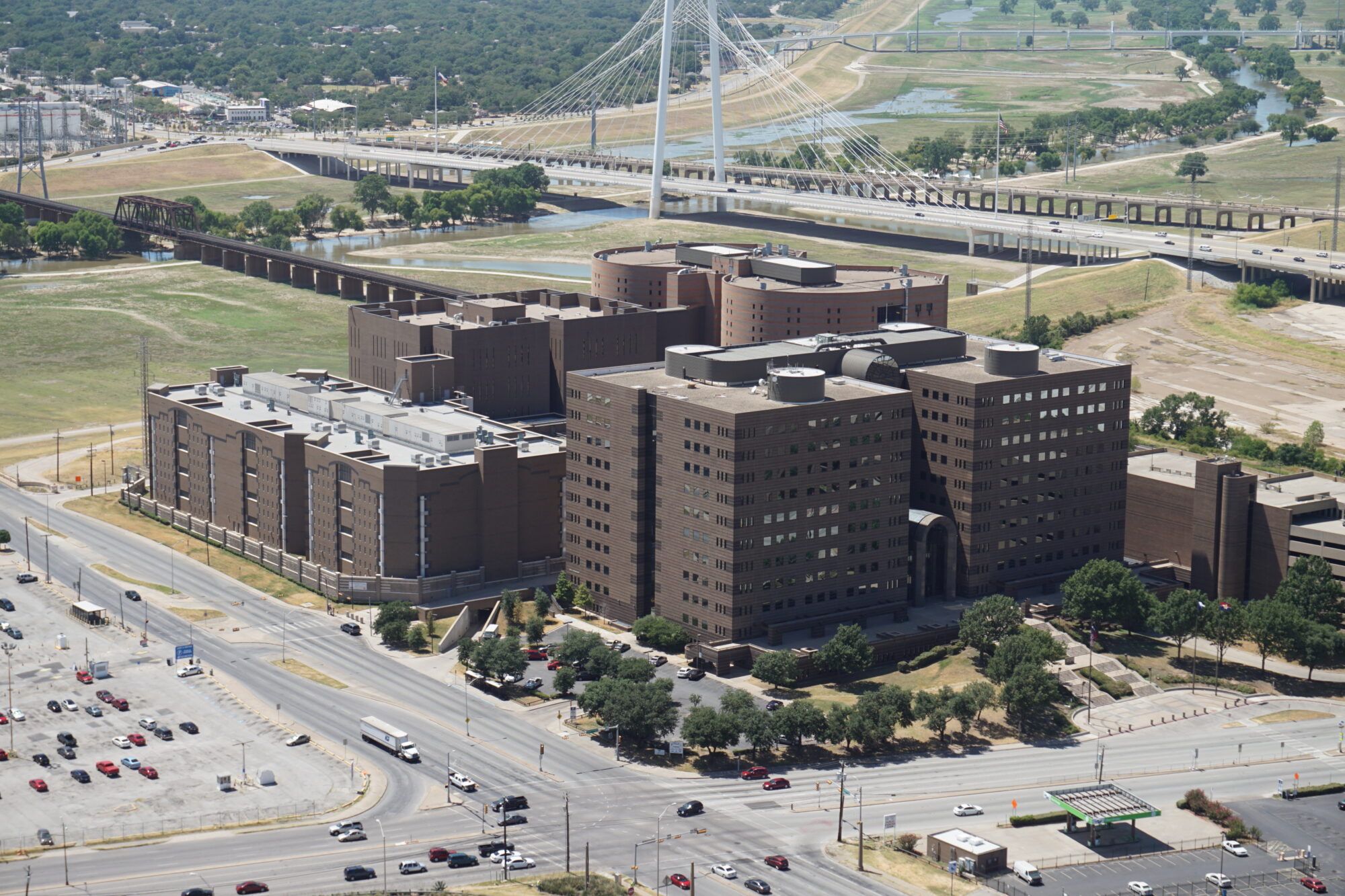
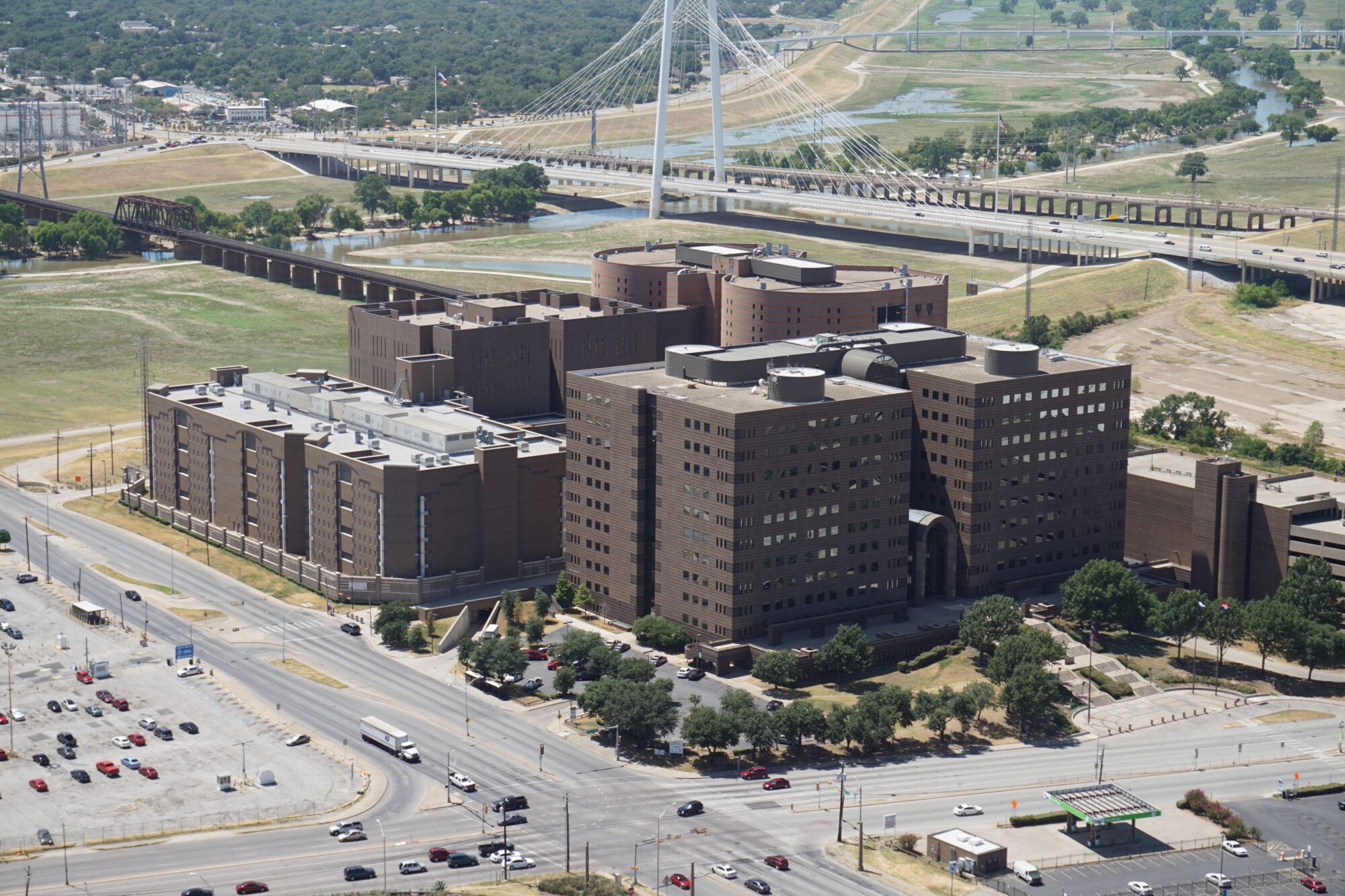
Last summer, Dallas County Sheriff Marian Brown sat inside her car to record a video to post social media talking about voting inside her jail. Progressive activists had been pushing her and other county officials to do more to ensure ballot access for people in the jail who are eligible to vote but often face barriers in doing so. Brown began her video saying she had recently encountered constituents who asked her, “‘Are you going to let them vote?’—them being the inmates.”
Brown explained that eligible voters in the jail could request and mail ballots, since confinement in jail is one the few situations that allow people to vote absentee in Texas. “Some people would have you think that we’re not allowing people to vote,” the Democratic sheriff continued. “Such is not the case. They are voting. It’s just that they’re not doing so at a polling station.”
A few months after Brown’s video, in the November midterms, just one person voted from jail via an absentee ballot, according to county data obtained by Bolts, which is in keeping with the historical trends. Roughly 6,000 people are held inside the massive jail on the edge of downtown Dallas. The vast majority are incarcerated pretrial and many are likely eligible to vote, but few actually do. Only two people voted by mail from the jail in the 2016 presidential election. That number rose in the 2020 presidential election but remained a tiny share of the jail population, with 34 people returning a mail ballot.
Dallas activists had asked for a polling place to be installed at the jail for last year’s midterm elections, but faced pushback from some officials, including a county commissioner who called the issue “less than last on my list.” In her message posted to social media last summer, Brown questioned the feasibility of a polling place at the jail and claimed that adding one could compound short staffing at her lockup.
But activists got their wish this past spring, when officials quietly approved a jail polling place for the May 6 municipal elections. “This is something we have actively been working on for some time,” Brown said in another post. “We are pleased to be able to expand voting for our inmates in Dallas County Jail.”
Twenty people voted in person at this new polling place on May 6. An additional ten returned an absentee ballot from the jail. While an increase from November, especially for generally low-turnout local elections, the numbers are still pale compared to the county’s immense jail population. Brown said in her announcement that her office would use the spring’s low-profile elections to iron out any logistical issues. “The municipal elections afford us the opportunity to do a trial run to fill these gaps,” she said.
As far back as 1974, the U.S. Supreme Court has affirmed voting rights for people held in pretrial detention who, unlike people in state prisons, haven’t been convicted of a crime. But whether people in local lockups can actually exercise that right often depends on county sheriffs, who run the majority of county jails.
Nearly all jails make incarcerated people who want to vote request an absentee ballot through the mail and then send it back, which can be tricky given tight deadlines and mail delays. This system also misses people who enter the jail after the deadline to apply for an absentee ballot. In 2020, for instance, the 6th U.S. Circuit Court of Appeals ruled that Ohio officials were not required to help eligible voters incarcerated after this deadline, even though election officials provide voting options for people hospitalized after that deadline.
“There are a lot of issues with absentee ballots as the primary means for ballot access in custody,” Nicole Porter, senior director of advocacy for the Sentencing Project, told Bolts. “People in mailrooms don’t know how to treat ballots properly… And the jail facility itself lacks training and accountability.”
Activists have played a vital role expanding voting access behind bars by visiting local jails to register eligible voters and provide election day information. But in recent years they have also started pushing for election-day polling sites in lockups.
In 2020, the Cook County jail in Chicago became the first jail system in the country to install a polling place for eligible voters incarcerated on election day, and voting there continues to rise, with turnout at the jail surpassing the citywide turnout in the June 2022 primaries. The Harris County jail in Houston, the largest in Texas, followed suit with an election day polling place in 2021 after a long campaign from local activists to expand ballot access to eligible voters detained there. Dallas this spring became the second jail in Texas with an election day polling place.
Still, emails from the Texas Secretary of State’s Office obtained by Bolts under an open records request show how jail and elections staff across the state often question how and even whether to let people vote from jail, a dynamic Bolts has covered elsewhere in the country. The state discouraged at least one large urban county from setting up a jail polling place after Harris County established one; when a county attorney in Bexar County, home to San Antonio, reached out for guidance last summer, an attorney with the secretary of state’s office wrote them back saying, “a jail would not be a permissible polling location.”
This year, Texas Republicans, ever hostile to expanding ballot access, filed a bill to prohibit polling places in a jail or any other detention facility, but it never advanced. Voting rights activists say changes to voting laws that Texas lawmakers already passed in recent years could compound the problems people face trying to vote from jail, pointing to new absentee voting rules that resulted in more than 20,000 rejected mail ballots during the 2022 midterm primary elections.
Alex Birnel, advocacy director with MOVE Texas, a voting rights group that pushed for a polling place at the Dallas County jail, told Bolts that, in addition to working with the county sheriff, activists also had to persuade other county officials. “While sheriffs deal with the logistics, you’ve got to be in conversations,” Birnel said. “It cannot be done solo. You need the commissioners’ court and county institutions to be involved.”
Dallas’ Democratic county executive, County Judge Clay Jenkins, eventually backed the idea, and last year he started pushing other county leaders to support putting a polling place inside the jail for the November 2022 midterm elections. “Most Texans agree that voting should be safe, easy, and accessible to all, and while Dallas County has taken several steps to ensure access to the ballot box, there is, unfortunately, one group of eligible voters who have been denied their right to vote for far too long: the over 5,000 pretrial inmates at our Dallas County jail,” Jenkins wrote in an op-ed last September. “Denying thousands of Dallas County voters the opportunity to cast their ballot, as we have done for so long, is wrong, and we need to fix it.”
A coalition of advocacy groups, including the ACLU of Texas and the Texas Civil Rights Project, kept up the pressure, writing a joint letter to the sheriff after she publicly dismissed the possibility of election-day voting at the jail. “Despite your claim that people in the Dallas County Jail already vote by mail, voting by mail on its own is insufficient to provide people in jail with the opportunity to vote,” the groups wrote in a Sept. 27, 2022 letter.
“Because people of color are disproportionately incarcerated, denying ballot access to people in jail disproportionately disenfranchises Dallas County’s voters of color,” the groups argued, writing that failing to facilitate election day voting for eligible detainees “may give rise to liability under Section 2 of the Voting Rights Act.” The letter also pointed to the county’s continued reliance on cash bail for determining who is jailed pretrial and said, “because many pretrial detainees are incarcerated solely because they cannot afford to pay bail, there is effectively a poll tax—wherein they must pay bail to vote.”
While they resisted the idea before the midterms, Brown and other county officials ultimately agreed to election day voting at the jail by the time they were determining polling locations ahead of this year’s municipal elections. When asked if the jail will continue to host a polling place in future elections, the sheriff’s office told Bolts, “Yes, the plan is to continue having a polling location at the Dallas County Jail for inmates and one outside for the public as we did in May.”
As Dallas shifts on the issue, and while Republican lawmakers in Texas continue to create barriers to voting, Porter urged other local officials to prioritize expanding ballot access where they can. “Democracy should be a priority for everybody and access to the ballot should be a priority for anyone who has influence and concern for liberty,” Porter said. “It should be a priority for sheriffs and county officials to guarantee ballot access for people to be eligible to vote during custody. They are humans and eligible.”
Sign up and stay up-to-date
Support us
Bolts is a non-profit newsroom that relies on donations, and it takes resources to produce this work. If you appreciate our value, become a monthly donor or make a contribution.



